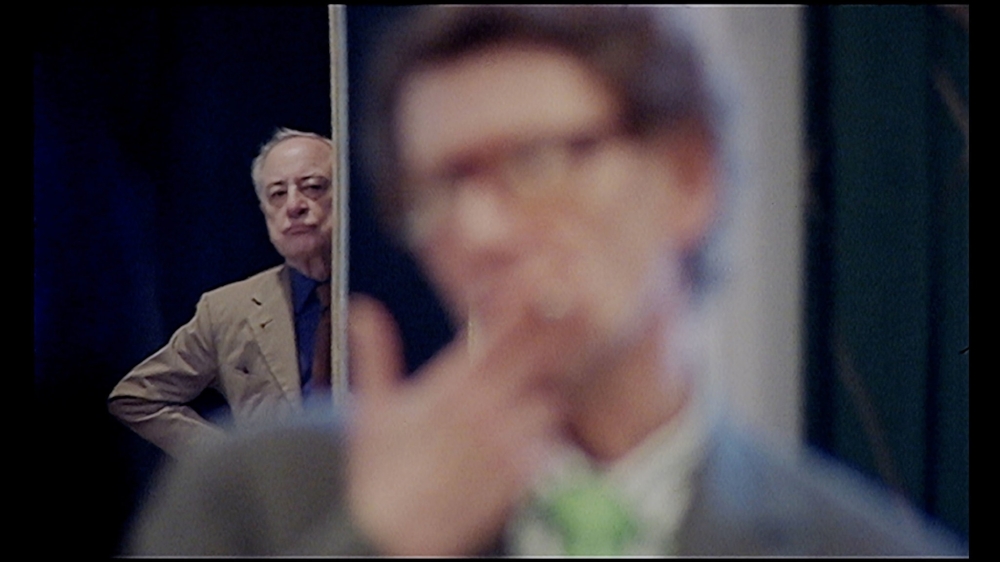On its face, “Celebration,” the newly-edited film released this week in theaters in Paris, has nothing to do with the law. It is a documentary that occupies the fashion space, centering on the lives of the late Mr. Yves Saint Laurent and his longtime life/business partner Pierre Bergé. Yet, at the very same time, the film, which is the handiwork of French director and screenwriter Olivier Meyrou, speaks to the law in a rather significant way.
The film, itself, is a look at the final stages of the career of Mr. Yves Saint Laurent, a man known for revolutionizing 20th-century fashion with, among other things, his take on suiting for women (as embodied in the enduring Le Smoking) and his legion of famous fans.
Meyrou, in an attempt to capture the denouement of one of fashion’s biggest names, spent three years shadowing the pair, capturing the day-to-day activities in the Yves Saint Laurent ateliers, going behind-the-scenes at the famed couture house’s seasonal runway shows at the Place de la Concorde in Paris, seeing Mr. Saint Laurent accepting his CFDA Lifetime Achievement award in 1999, and featuring cameos by some of Mr. Saint Laurent’s muses, including Loulou de la Falaise and Betty Catroux.
After completing filming in 2001, the film is now hitting big screens, 17 years later because Meyrou – despite being given “total freedom during the filming” – had that control yanked back. Not by Saint Laurent, but by the business savvy Bergé. To be specific, “The original ‘Celebration’ was shown once, at the Berlin International Film Festival in 2007, before it was blocked,” Alexis Hamaide of Playtime, the film’s distribution company, told the New York Times.
Not long after the festival in Berlin, a legal battle was born. “Mr. Bergé did not like the way the documentary portrayed him,” Nicolas Brigaud-Robert, a Playtime executive told the Times. So, he endeavored to block it, and won. It was an easy enough fight for Bergé and his legal team, as it turns out, “He had not signed a release authorizing use of his image [in the film].”
French law has since at least the end of the 19th century provided individuals with the right to control the use of their personal image – droit à l’image, thereby making unauthorized commercial use of someone’s image illegal.
As such, the film was buried away for almost two decades. But then, something changed. Almost 10 years after Mr. Saint Laurent’s death in 2008, the fashion industry was mourning Mr. Bergé, who passed away in September 2017 at the age of 86. The loss of the great fashion businessman presented Playtime and Mr. Meyrou with a loop hole, so to speak: in France, image rights cease to exist after a person dies. In other words, Bergé’s objections to the release of the film were no longer based on merited legal claims. (It is worth noting that unlike some posthumous rights, droit à l’image protections do not extend to the deceased’s estate).
Bergé’s death had breathed new life into the film, and Playtime and Meyrou were ready to go. “Image rights expire with you,” Mr. Brigaud-Robert told the Times. “‘Celebration’ is freed.’”
As for a spokesman for the Pierre Bergé-Yves Saint Laurent Foundation, they have “no comment to make on the film.”
“Celebration” was not the first YSL-specific film that Bergé attempted to block. In 2013, ahead of the debut of two films about the late Yves Saint Laurent, Bergé threatened to sue director Bertrand Bonello if he “explored any of Mr. Saint Laurent’s private life on film, or used the late designer’s image or any Saint Laurent creations” in connection with the production. Bergé publicly stated that he (as distinct from Yves Saint Laurent’s parent company, Kering) exclusively “holds the moral rights in Mr, Saint Laurent’s work, his image and mine and have only authorised Jalil Lespert,” the director behind the rival Saint Laurent film.
Both Bonello and Lespert’s films were released without any public legal squabbles.











